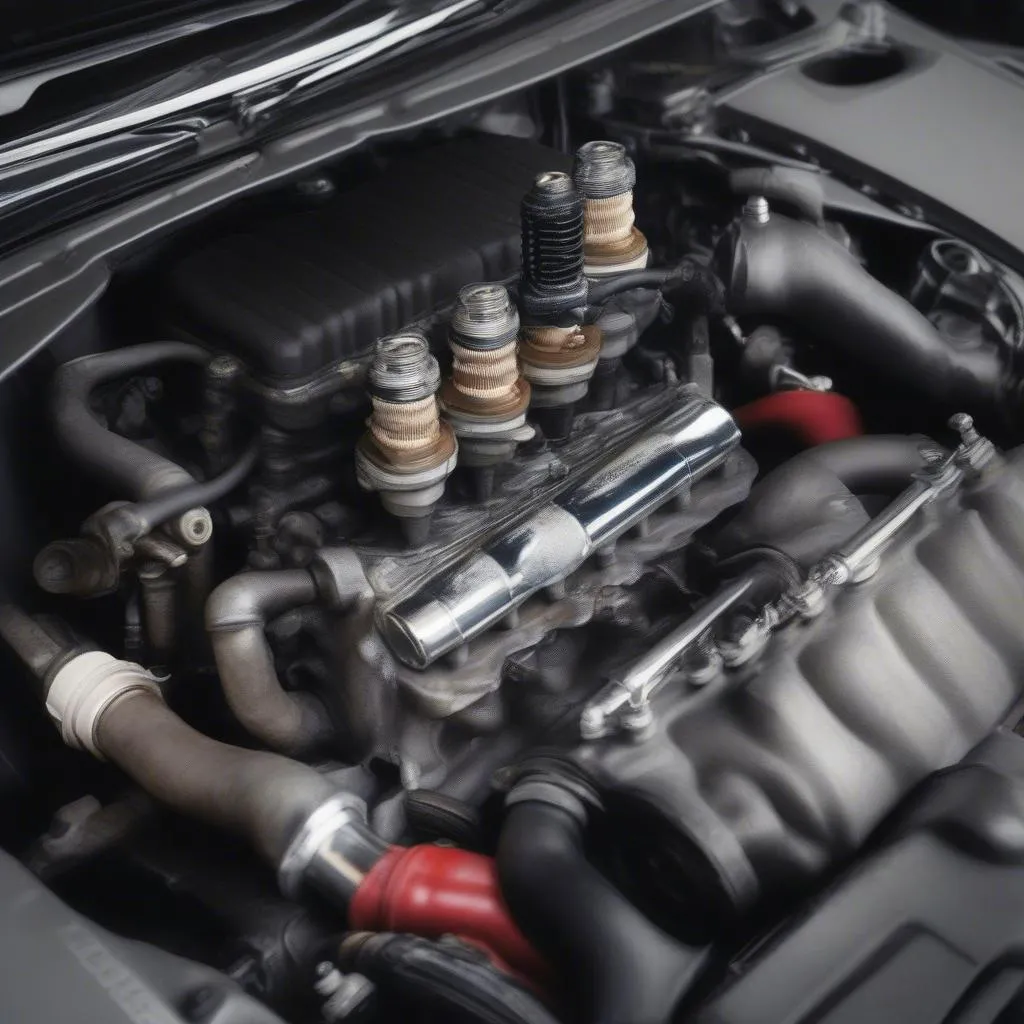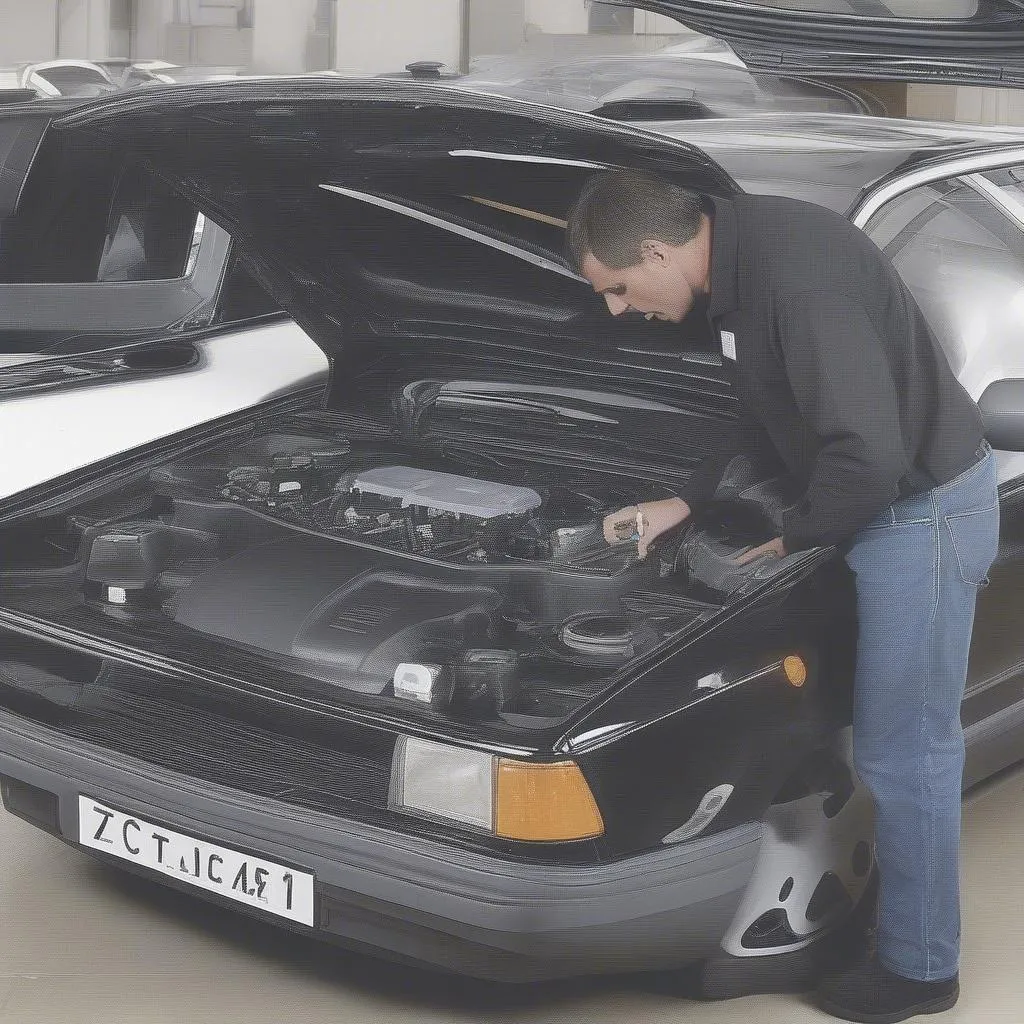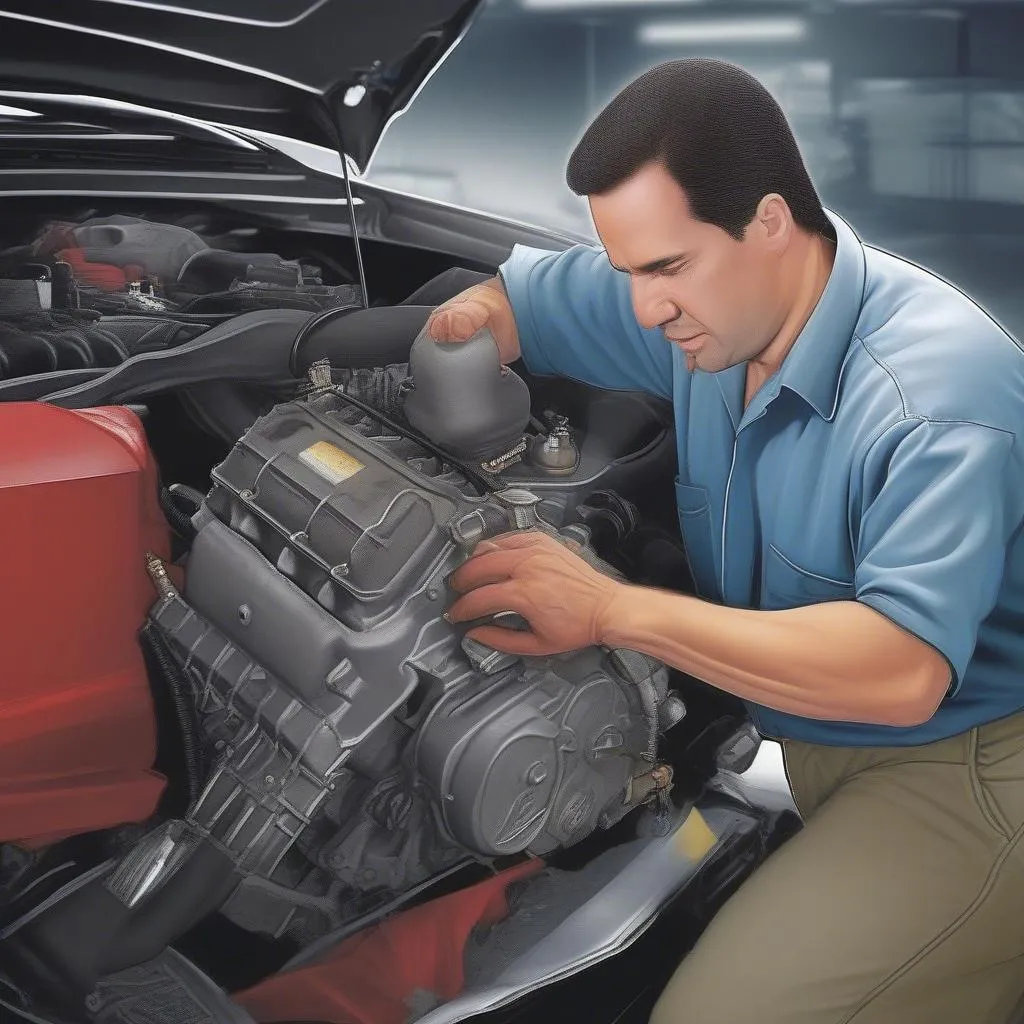Imagine this: You’re cruising down the highway, enjoying the open road, when suddenly your engine starts to shake violently, especially when you accelerate. It’s a nerve-wracking experience, and you’re left wondering what’s wrong with your car. This is a common issue that many car owners face, but don’t worry, we’ll dive deep into the possible causes, diagnosis, and solutions for this problem.
Understanding the Problem: Why Does My Engine Shake When Accelerating?
An engine shaking while accelerating can be attributed to a variety of factors, and understanding the underlying cause is crucial to finding the right solution. Let’s break down the issue from different perspectives:
Mechanic’s Perspective
From a mechanic’s viewpoint, the shaking usually points towards an imbalance in the engine’s combustion process, causing uneven power delivery. This can be caused by several factors such as:
- Spark plugs: Worn or faulty spark plugs can disrupt the proper ignition of the fuel-air mixture, leading to irregular combustion and engine shaking.
- Fuel injectors: Clogged or malfunctioning fuel injectors can cause inconsistent fuel delivery, leading to uneven combustion and engine vibration.
- Ignition coils: Defective ignition coils can prevent the proper firing of spark plugs, resulting in a misfire and engine shaking.
- Engine mounts: Worn engine mounts can allow the engine to move excessively, leading to vibrations that are felt throughout the vehicle.
- Vacuum leaks: Leaks in the vacuum system can disrupt the engine’s airflow and cause uneven combustion.
Technical Perspective
From a technical standpoint, the problem can be explained by the concept of “engine misfire.” When an engine misfires, one or more cylinders fail to ignite properly, leading to a loss of power and a noticeable shaking sensation. This misfire can occur due to various factors, including:
- Incorrect fuel-air mixture: An incorrect fuel-air ratio can lead to an inefficient combustion process, resulting in misfires and engine shaking.
- Timing issues: Incorrect engine timing can cause the spark plugs to fire at the wrong time, leading to misfires and engine shaking.
- Sensor malfunctions: Faulty sensors like the oxygen sensor or mass airflow sensor can send inaccurate information to the engine control unit, leading to improper fuel-air mixture and misfires.
Economic Perspective
Ignoring engine shaking can lead to significant financial repercussions in the long run. A misfire can damage the catalytic converter, increase fuel consumption, and even lead to engine damage if left unchecked.
Diagnosis: Identifying the Root Cause
Diagnosing the root cause of engine shaking requires a methodical approach and often involves using specialized tools.
Dealer Scanner For European Cars
For European cars, the use of a dealer-level scanner is essential. This tool provides access to the car’s internal systems and allows technicians to retrieve diagnostic trouble codes (DTCs), which offer clues about the possible problems.
For instance, a DTC related to a misfire in cylinder #3 would suggest a problem with the spark plug, ignition coil, or fuel injector for that cylinder.
Other Diagnostic Techniques
Beyond the scanner, mechanics employ a range of other techniques, including:
- Visual inspection: A visual inspection of the engine bay can reveal visible signs of problems like worn spark plugs, loose connections, or damaged vacuum hoses.
- Compression test: This test measures the pressure within each cylinder, providing insights into the health of the engine’s internal components.
- Fuel pressure test: This test measures the fuel pressure delivered by the fuel pump, ensuring it’s within the correct range.
- Scope Inspection: Using a scope, mechanics can visually inspect the cylinder for signs of misfire, spark plug health, and other issues.
Solution: Fixing the Engine Shake
Once the root cause has been identified, the next step is to address it through appropriate repairs.
- Replacing faulty components: If the shaking is caused by a faulty spark plug, ignition coil, fuel injector, or other component, simply replacing the faulty part will typically resolve the issue.
- Adjusting engine timing: In cases of incorrect timing, a mechanic will need to adjust the timing belt or chain to restore proper operation.
- Repairing vacuum leaks: If there’s a vacuum leak, it needs to be identified and repaired to ensure proper engine airflow.
- Fixing engine mounts: Worn engine mounts can be replaced to minimize engine movement and reduce vibrations.
Common Scenarios
Let’s explore some common situations where engine shaking might occur:
Scenario 1: Engine Shakes When Accelerating From a Stop
This scenario often suggests a problem with the fuel injectors or spark plugs, causing uneven combustion when the engine is under load. It could also be related to vacuum leaks or timing issues.
Scenario 2: Engine Shakes at Higher RPMs
If the shaking occurs at higher RPMs, it may indicate a problem with the ignition coils, spark plugs, or a fuel delivery system. It could also be due to air intake system issues or faulty sensors.
Scenario 3: Engine Shakes While Idling
Engine shaking at idle can indicate a problem with the idle air control valve, a vacuum leak, or a misfire in one or more cylinders.
Frequently Asked Questions
Q: How serious is engine shaking?
A: Engine shaking can be a sign of a serious problem, but it’s important to get it checked out promptly to prevent further damage.
Q: What are the signs of a bad spark plug?
A: Signs of a bad spark plug include engine misfires, rough idling, reduced fuel economy, and engine shaking.
Q: How do I know if my engine mounts are bad?
A: Worn engine mounts can cause the engine to shake excessively, especially when accelerating or braking. You may also hear clunking noises coming from the engine bay.
Q: What should I do if my engine is shaking?
A: If your engine is shaking, it’s important to have it inspected by a qualified mechanic to diagnose and address the underlying issue.
Related Articles
- Car Shimmies When Accelerating
- Car Shakes While Stopped
- Why Is My Car Shaking?
- Car Vibrates When Accelerating
- Car Shaking While Accelerating
Call To Action
If you’re experiencing engine shaking and need professional help, don’t hesitate to contact us. Our team of experts can provide you with the support and guidance you need. Just reach out via Whatsapp: +84767531508 for a prompt diagnosis and solution. We’re available 24/7 to assist you with all your automotive needs.
Conclusion
Engine shaking can be a frustrating and potentially costly issue, but with a proper diagnosis and the right repairs, it can be resolved. Remember to have your car inspected by a trusted mechanic as soon as you notice any unusual shaking. Don’t let it linger, as ignoring the problem can lead to bigger issues down the road.
If you have any further questions or need assistance with diagnosing or repairing your car, please don’t hesitate to leave a comment or contact us directly. We’re always happy to help!
 Car Engine Shaking
Car Engine Shaking
 Dealer Scanner for European Cars
Dealer Scanner for European Cars
 Mechanic Inspecting Engine
Mechanic Inspecting Engine